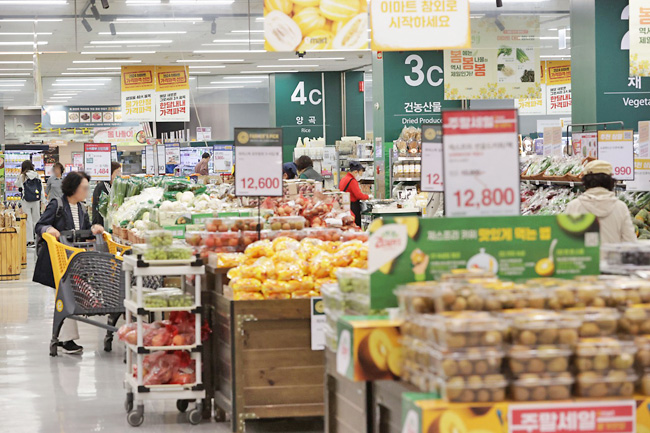ANN/THE KOREA HERALD – South Korea’s food prices jumped to 6.95 per cent in February, ranking third among the Organization for Economic Cooperation and Development (OECD).
Korea placed third among 38 member countries in food and beverage inflation, following Turkiye at 71.12 per cent and Iceland at 7.52 per cent in the latest OECD report for February.
This marks the first time in over two years that Korea’s food inflation has exceeded the OECD average since November 2021, currently registered at 5.32 per cent.
The global increase in food prices began after Ukraine’s invasion in February 2022, compounded by high energy prices and severe drought damage.
Consequently, the average food price increase in OECD countries, which stood below five per cent in 2021, soared to 16.19 per cent by November 2022.
Since then, the rate has swiftly returned to normal, dipping below 10 per cent in July of the preceding year and reaching to some five per cent by February, on par with the period just before Ukraine’s invasion. However, following a drop to 3.81 per cent last July, Korea’s food inflation has risen once more, consistently staying within the five to seven per cent range since October 2023, and surpassed the OECD average in February.
Analysts evaluate that the rise in domestic food prices was primarily driven by increases in the prices of fruits such as apples and pears, with apple prices soaring 88.2 per cent last month, the largest increase since January 1980 when official statistical reporting began.
To stabilise fruit prices, the government implemented a quota tariff on 21 categories of fruit, including bananas and mangoes, in January.
Additionally, in April, it extended the measure to include eight more categories, such as kiwis and cherries.
The government has expanded the distribution of Korea Agro-Fisheries and Food Trade Corporation (aT) directly imported fruits to enable consumers to purchase imported fruit at more affordable prices.
Since April 4, these fruits have been supplied to over 12,000 areas nationwide at a discounted rate of 20 to 30 per cent, according to aT’s announcement.







